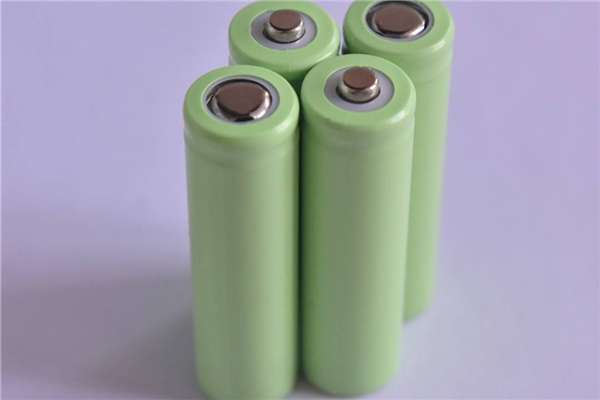Should lithium ion batteries be fully discharged before charging?
Aug 21, 2019 Pageview:7738
Introduction
Lithium-ion batteries are the most commonly used energy storage devices on various electronic devices, such as laptops, mobile phones and digital cameras. These batteries are preferred to others due to their stability and relatively low maintenance nature. Additionally, they have a low self-discharge rate. It is for these reasons that the lithium-based batteries have successfully taken the lead in nickel-cadmium batteries. With the ubiquity of these batteries, many people still don’t know how to take care of them. Some have even come across misleading information that can only do more harm to their batteries. There is a need to learn how to maintain lithium batteries. Proper care will not only prolong battery life but also protect your device from potential damage. One of the proper care for your lithium battery is to not allow it to drain completely before recharging it. Some people believe that they should leave their lithium-ion batteries to fully discharge before charging it.?That will only harm your battery and can even lead to permanent damage. Let’s discover more about that.
Do you need to drain a lithium-ion battery before recharging?
You do not need to drain a lithium-ion battery before recharging it. Unfortunately, some people believe that by discharging a lithium battery completely before recharging it will improve its battery life. This is very wrong. Using all the stored energy in the battery before recharging does not help extend its life. Modern lithium-ion batteries can be easily damaged when they are used up completely before they’re recharged. This practice negatively affects the longevity of the battery and is, therefore, counterproductive.
Discharging a lithium-ion battery completely before recharging is not recommended, as far as the battery life is concerned. This is because it could lead to problems like mechanical degradation of the cathode or result in reactions with the electrode or the electrolyte. Most of the times, if such internal issues happen, they reduce battery life by a considerable extent.
Every battery wears down over time. A lithium-ion battery wears down by a small extent every time it is discharged or charged completely. If you drain a lithium-ion battery fully, it is likely that it could potentially degrade by up to 70% of its original capacity in just a few discharge/charge cycles.
You do realize that by completely discharging your battery before recharging, you do more harm than good. The best thing to do to extend the battery life of your device is to not let go below 30%. Basically, you should operate it between a charge range of 30-80%.
How much energy you discharge in one go is a measure referred to as depth of discharge (DoD), and it matters a lot. Lithium ions do not like a deep depth of discharge. If your battery goes through 100 per cent depth of discharge it can degrade to 70 per cent of its original capacity in just 300 to 500 cycles. With the depth of discharge 25 per cent, where the user plugs the battery in as soon as it gets to 75 per cent remain, the battery could undergo up to 2,500 charge cycles before it starts to seriously degrade.
Is it OK to leave a lithium ion battery on the charger?
There is a lot of debate about the effects of leaving a lithium-ion battery charging overnight. It is always not recommended not to fully charge your device, and particularly not from a low charge level. Charging your battery to 100 per cent can reduce capacity and shorten its lifespan. It’s better not to fully charge?because a high voltage stresses the battery and it wears out in the long run. Therefore, if charging to 100 percent causes the most damage to your lithium-ion battery, you should probably not leave it in the charger.
However, leaving your lithium-ion battery in the charger overnight is far better for your battery than running it down completely and then charging it up. When a battery discharges to zero per cent, it can wildly become unstable. If a batter comes close to that danger zone, a protection circuit in the battery will activate and kill the battery forever, functionally destroying the battery before it can discharge to a level where it’s in danger of exploding.
Sometimes, leaving your battery in the charger overnight is not an issue. That’s because, the devices, the lithium-ion batteries in them and chargers your plug them to are pretty modern and smart about how they handle charging. When your battery is connected to the charger and is full, it gets a trickle charge. This type of charge is way less harmful to the battery’s health than a lower discharge would be.
Additionally, almost all modern lithium-ion batteries have some sort of power management IC, which is designed to prevent overcharging the battery. The device will ensure the battery stays full and will go throughout the night with a trickle charge at most.
You need to note that the biggest danger to your lithium-ion battery is not overcharging, but heat. With that in mind, it might be wise to avoid using your phone or pop out your laptop battery while it is plugged into the wall. Some may not need to pop their laptop battery, but if you’re using your laptop while plugged into the wall and generating a lot of heat, it’s definitely wise to pop out removable battery to keep it from overheating and deteriorating. However, the problem is that if you’re using the laptop without the battery, you run the risk of a shutdown in the case of a power outage or even clumsiness with the power adapter.
Should phone battery die before charging the first time?
First, before we address this question we will start with a myth that has always been there for quite some time that you should charge new lithium batteries at least 12 hours when first used. Most sellers tend to mislead battery users by advising them that they must charge their batteries first for 12 hours before using them. This is unnecessary. Most lithium batteries are activated before leaving the factory. They have a low self-discharge rate and, thus it is unnecessary to charge them for such a long time when new.
Back to our question, it is not true that you should let a battery before charging the first time. When you acquire a new battery, you can start using it right away. Actually, you should not let it discharge completely before charging it up. This will harm your battery. The best practice you do is to not let it drain below 30 per cent. You can charge it up to 80 per cent.
Conclusion
Lithium-ion batteries should not be discharged completely before recharging. They should be kept at charge levels between 30 and 70 per cent. Letting your battery drain completely will adversely affect its lifetime and capacity. If a battery is charged before it drains and topped off throughout the day, you will get more charge cycles. New batteries should not be drained completely before charging them for the first time. Also, it is unnecessary to let your battery charge for at least 12 hours for the first time.
- Prev Article: Talk About 18650 Battery Charging Amps
- Next Article: Talk about Lipo Battery Safe Discharge Voltage
Leave Message
Hottest Categories
-
Hottest Industry News
-
Latest Industry News











